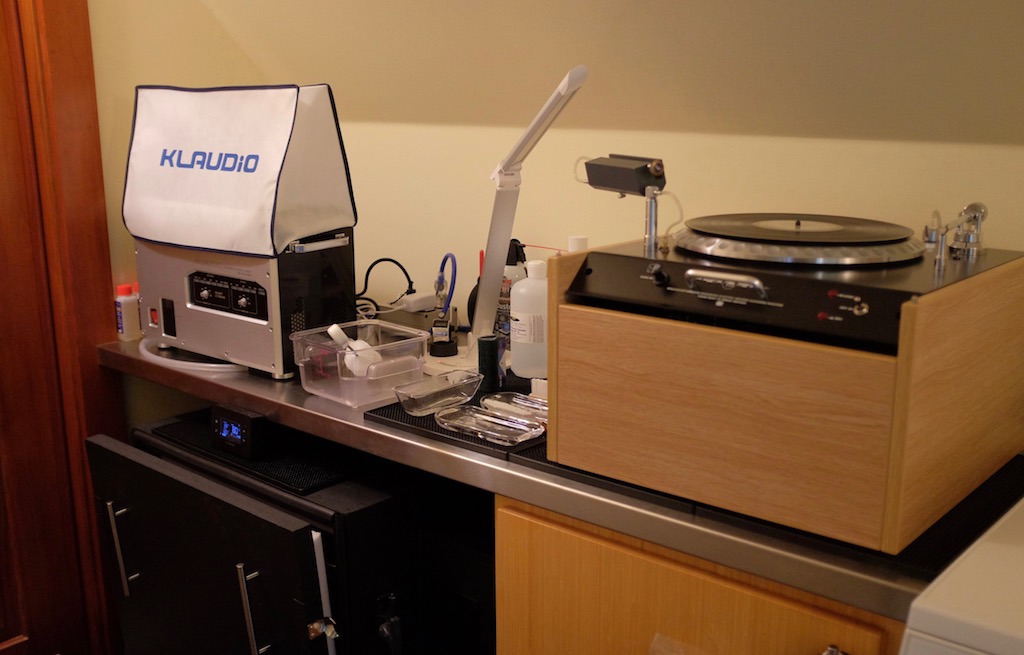I’ve had both the AD and the KL (more about that in a minute), but started in the early ’80s with the first generation VPI- a Model 16 that had been converted to a 16.5. When I left NY at the very beginning of 2017, the VPI was still running fine and I gave it to a friend.
The AD was very innovative but had teething problems- Robert Stein, the US importer worked pretty hard to help his customers- some of the issues weren’t complicated but the machine was not designed to be taken apart and fixed by users. Later, a "pro" model came out (at least that’s what I think it was called) which supposedly addressed some of the field experience with the original machine. (I say "supposedly" not b/c I think anyone is lying but I didn’t own that model so didn’t live with it),
The KL went through a number of iterations- the original machines, some running changes- there was a switch on the front panel that was eliminated, a better cooling system was introduced and a model with an external water tank was later produced. It was at that point that KL folded its tent but Chad made a deal to sell a new and improved external tank version of the KL. It has various accessories, including a tap to tie into your home or building water system, and unlike the usual routine of using distilled, R/I or better, likes to see some minerality in the water. I believe this has been addressed in reviews.
Hopefully, without jinxing myself, I’ve been running my KL -a mid era model with the cooling system, but no external tank--for some years. I can’t say I’ve cleaned millions of records but I’ve cleaned quite a few of my own and as a favor, for friends. It’s a well built machine. The version Chad now sells is probably just as well built, perhaps with a better filtration system, but it is expensive.
The DeGritter has a lot of feedback from users on application, cycles, fluids, soft or firmware upgrades via the Internet on the SH Forum where I think the most extensive discussion of the machine by actual owners, not reviewers, exists.
I did not view the US method as a substitute for more traditional manual clean and vacuum, but as a complementary method that produced better results (the word "synergy" is over-used in audio).
There is also the DIY market, which is not necessarily for cheapskates- e.g. the ultrasonic baths alone can cost what a complete made for LP cleaning machine costs, without spinner or drying facilities, filtering, etc. There’s a fair amount of published literature on the subject. One product fave in that area is the Elma brand, but you’ve got to be prepared to spend on the necessary accessories to spin the record and dry it, leaving aside filtering and cooling.
I’ve spent a fair amount of time researching the subject and, like an old car mechanic that still drives a ’60s Cadillac, use a Monks Omni and the KL (mid-era, not the outside tank version offered by KL or now by Chad).
My conclusion--much is in method, not machinery. US offers convenience and I think it does add a certain additional refinement to the sound of an otherwise clean record. I do not use any chemistry in the KL; some US machines rely on chemistry to lower surface tension of the water to make the implosions more impactful. There’s a fair amount written (won’t get into accuracy) about "power" "frequency" and the like. You need to read up if you are spending 4k on an RCM. Reliability is also key, One of the things I like about the now antiquarian Monks is that is it classic British engineering- (no, it doesn’t leak oil and the lights don’t go out).
I would not flatly recommend one machine over another without knowing the user’s volume, expectations and the condition of the records being cleaned.
Here’s my cleaning station from a few years ago, sans the record flattener and a couple shelves of chemicals: 


